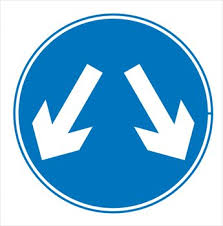either
英 [ˈaɪ.ðər]
美 [ˈiː.ðɚ]
- adj. 两者之中任一的;两者之中每一的
- prep. 任何一个
- conj. 也(用于否定句或否定词组后);根本
- pron. 任一,两方,随便哪一个;两者中的一个或另一个
使用频率:

中文词源
either 两者中的任何一个
缩写自古英语aeghwaether, 来自ae, 词源同each. hwaether,同whether. 即两者中永远有一个。
英语词源
- either
-
either: [OE] Either is the modern descendant of an ancient Germanic phrase which meant literally ‘always each of two’. Its constituents were *aiwō, source of English aye ‘ever, always’, (which was also one of the building blocks of which each was made) and *gikhwatharaz, ancestor of English whether. In Old English this became lexicalized as the compound ǣgehwæther, subsequently contracted to ǣgther, from which developed modern English either. Despite its similarity, neither is more than just either with a negative prefix tacked on: its history is parallel but slightly different.
=> aye, whether - either
- Old English ægðer, contraction of æghwæðer (pron., adv., conj.) "each of two, both," from a "always" (see aye (adv.)) + ge- collective prefix + hwæðer "which of two, whether" (see whether). Cognate with Dutch ieder, Old High German eogiwedar, German jeder "either, each, every").
Modern sense of "one or the other of two" is late 13c. Adverbially, for emphasis, "in any case, at all," especially when expressing negation, by 1828. Use of either-or to suggest an unavoidable choice between alternatives (1931) in some cases reflects Danish enten-eller, title of an 1843 book by Kierkegaard.
权威例句
- 1. She had met both sons and did not care for either.
- 两个儿子她都见了,一个都不喜欢。
- 2. He seems either to fear women or to sentimentalize them.
- 他似乎要么怕女人要么就对她们怀有浪漫想法。
- 3. On either side of the tracks the ground fell away sharply.
- 跑道两侧都是很陡的斜坡。
- 4. Both groups on either side are just picking off innocent bystanders.
- 对峙双方都只是在瞄准射击无辜的旁观者。
- 5. Either you can talk to him, or I will.
- 要么你跟他谈,要么我去。
